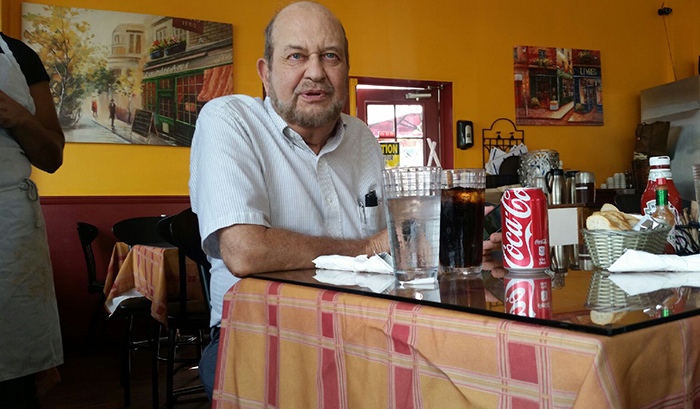More than one month after the state Supreme Court ruled unanimously that text messages and emails sent by public officials on their personal devices are matters of public record if they deal with public business, Gov. Brown has still not moved on his own email issues.
During that time, Mr. Brown flouted his own boasts of transparency by using a federal anti-terror rule to deny public access for records on various aspects of the Oroville Dam crisis.
Mr. Brown’s email issues stem from his communications with the state Public Utilities Commission at the time of the infamous PUC decision on financing the closure of the crippled San Onofre Nuclear Generating Station. The settlement forced customers of Southern California Edison Co. and the San Diego Gas & Electric Co. to foot more than 70 percent of the $4.7 billion cost for the shutdown, largely caused by an Edison blunder.
The question: Was that so-called settlement mostly decided in a well-documented secret meeting between then-commission President Michael Peevey and Edison executives in a luxury hotel in Warsaw, Poland? Or did Mr. Brown have a major hand in it?
Either way, the division of costs was so unfair that the PUC was forced last fall to reopen its decision-making process, a process that is not yet finished.
For sure, more than 60 possibly relevant emails exist between Mr. Brown and the PUC. San Diego consumer lawyers Michael Aguirre and Mia Severson have pushed almost two years for their release, but Mr. Brown steadfastly refuses, calling them confidential. No one knows if any or all involved Mr. Brown’s personal email, which would make these communications subject to the recent state Supreme Court ruling.
It would not be a good idea to bet on these emails being released anytime soon. When current U.S. Sen. Kamala Harris was state attorney general and conducting a loudly announced investigation (still incomplete well over two years after Mr. Peevey’s homes were raided by investigators), she delayed indefinitely a ruling on whether Mr. Brown must divulge the emails. Meanwhile, Mr. Brown was heartily endorsing her Senate candidacy.
Now, with the impending retirement of Pete Wilson-appointed state high court Justice Kathryn Werdegar, Mr. Brown will soon have appointed the majority of members of that court.
His Pals on the Supreme Court
Given that Mr. Brown appears to expect even supposedly independent appointees to toe his political line – his PUC commissioners are good examples – there’s no reason to expect the state’s high court ever to go against him.
For sure, there are indications from material already made public that Mr. Brown at the very least knew and approved what would happen between Edison and the PUC at the time San Onofre was playing out. A June 6, 2013 note sent by Edison CEO Ted Craver to company board members starts with Mr. Craver saying he “wanted to give you a quick report on my phone calls with Gov. Brown.”
At the time, Mr. Brown was meeting in Rancho Mirage with President Obama and Chinese President Xi Jinping. Reported Mr. Craver, “He said what we were doing seemed right under the circumstances.” Mr. Craver said Mr. Brown “indicated a willingness to” say publicly that Edison was acting responsibly. No one knows what, if anything, else might have been covered in that call.
No one also knows what Mr. Brown said in all his subsequent emails to PUC members. But the eventual PUC decision blatantly favored Edison. There is no record of Mr. Brown talking to consumer advocates around that same time.
Maybe Mr. Brown was directly involved in the entire decision-making process. Without the 60-plus emails – and maybe even with them – it’s impossible to know. He and his press secretary have consistently refused any comment.
Now comes the state Supreme Court’s ruling on private emails dealing with public policy decisions. If any of the Brown messages were on a private email account, they should be subject to this ruling.
No one yet knows how new Atty. Gen. Xavier Becerra, appointed by Mr. Brown, will deal with the issue. So far, he’s said nothing about the entire investigation into the PUC.
The taint of possible Brown complicity in what may have been corruption remains. It could become a significant part of his legacy unless he relents and lets the public in on public business he so far has kept very private.
Mr. Elias may be contacted at tdelias@aol.com
His book, “The Burzynski Breakthrough, The Most Promising Cancer Treatment and the Government’s Campaign to Squelch It,” is now available in a soft cover fourth edition. For more Elias columns, visit www.californiafocus.net

